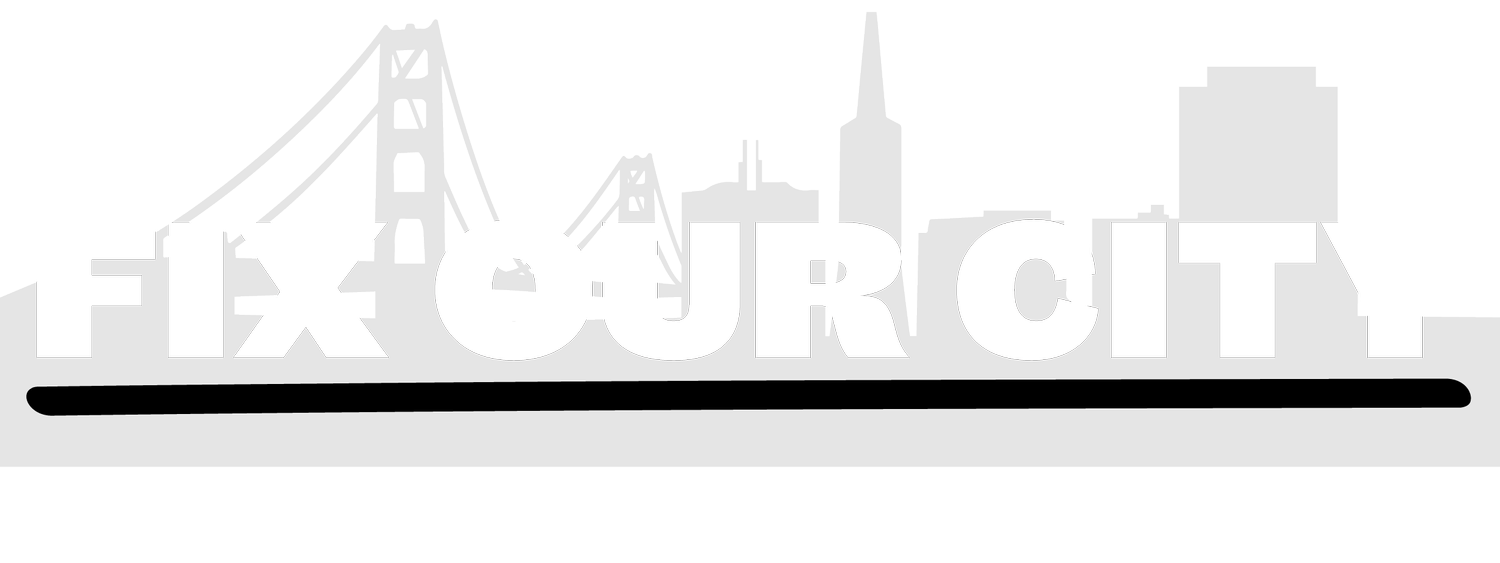

STRIKE FAQ
Why consider a strike?
The services we provide exist because our residents value them and see a need for them. And yet our residents have seen the quality of our city services slipping due to the City’s unprecedented hiring crisis. The City’s response has been to sacrifice vacancies to balance its budget, have our members take on the work of several positions, and then contract out city work for more than it would cost to hire permanent city employees. And in our contract negotiations, the City remains uncommitted to our proposals to Fix Our City’s vacancy crisis and for wage increases that will benefit recruitment and retention of our understaffed workforce.
We are fighting for:
Our city to be staffed up so we can deliver high-quality services
A process to ensure contracting out is used judiciously
Public sector strikes are about aligning our society with its stated values: we cannot in good conscience let this continue if we want to Fix Our City. We need to send a message to City Administration about our contract demands and/or respond to any unfair labor practices by City Administration. A credible strike threat is the only thing that will make the City listen.

How do strikes work? What would a strike look like?
Strikes involve a majority of workers refusing to work. Instead of reporting to work, strikers report to their union’s picket lines on each day of the strike until the strike is over.
Strikes resemble the rallies and marches we’ve held at City Hall, SF General Hospital and 49 South Van Ness—and the larger the picket line of striking employees, the more likely the City is to agree to our demands. Food and water is provided, and family members, the community and all supporters are invited to participate in and support it.

How would a strike be decided on? How long would it go?
Union members would vote to authorize our bargaining teams to be able to decide if/when to call for a strike. Together we represent over 20,000 union members in the City and County of San Francisco. Should the bargaining teams determine a strike is needed to reach an agreement, members would be provided advance notice and instructions for how to participate in the strike and join our picket lines.
Our goal would be to reach agreement without having to strike, and if we must strike, to get an agreement with as few strike days as possible. That can be achieved only if we have an overwhelming majority of members demonstrating they are ready to strike. Most strikes that have been called by unions in this coalition have been for a limited duration, typically lasting 1-5 days.

Who can strike?
Q: Who has to go on strike? What if I cross the picket line?
Over 20,000 union members can strike. Unions can’t force anyone to strike, but workers who cross the picket line undermine themselves and their co-workers, and we need everyone to participate to be effective. Rather than fixing the problem, the City continues to point to vacancies and our members doing the work of several jobs to justify contracting out city work at greater cost than hiring permanent city employees. We can’t let this continue if we want to Fix Our City. We can’t afford NOT to strike!
Q: Can non-members strike?
Yes, but they are not eligible to vote or request strike hardship assistance. The first step non-members can take to show support with their coworkers and send a message to the City is to become a union member.
Q: Can temporary/provisional/probationary workers strike?
Yes, all union-represented workers have the right to strike. It is illegal to terminate or retaliate against temporary, provisional or probationary workers because they exercised their legal right to strike. Immigration status also does not affect your right to strike. The California Public Employment Relations Board (PERB) has ruled that the form the City has made employees sign saying they cannot strike is void and unenforceable. Your union will fight to ensure all members’ right to strike is protected.
Q: Would other City unions strike as well?
Each union’s membership will need to decide whether to strike. We have seen the power that comes from all of our unions standing together, and with all of our members’ collective support and solidarity we could send an even stronger message to the City.

How would being on strike affect my pay, healthcare, and benefits?
Q: Do I get paid while being on strike?
Strikes involve a majority of workers refusing to work, and going without pay in the short term in order to win long-term gains.
Q: Can I use sick leave?
Not unless you have proof that you are legitimately sick. If you’re on strike, you’re not sick.
Q: If a member is on vacation when a strike begins, or is scheduled for vacation during the strike, what happens to vacation time and pay?
The City may attempt to cancel all pre-scheduled vacation. If the City does not cancel pre-scheduled vacation, you are welcome to join the picket line while you are on vacation and receiving vacation pay.
Q: What happens to leave status (personal, maternity) if on leave during a strike?
Members on medical leaves should not be considered to be “on strike.” They are welcome to join the picket line if doing so is not inconsistent with their basis for being on leave from work.
Q: Will I get paid unemployment benefits if I go on strike?
No. Workers are generally not eligible to receive unemployment for a strike.
Q: What about my health insurance?
Your healthcare insurance stays in place. California law prohibits public employers from discontinuing employer contributions for employees’ health insurance coverage during a strike. Employers must also collect and remit employees’ contributions for health insurance coverage during a strike.
Q: Is there a strike fund to help workers on strike?
Most coalition unions do not have a strike fund with the capacity to cover members’ lost wages. When members go on strike, it’s because they have decided that what they stand to gain from the strike outweighs the day(s) of pay they will lose from being on strike. If coalition unions do have strike funds, they are not intended to be a substitute for wages but rather a tool to support a limited number of financially disadvantaged members who participate in a strike action. We suggest starting to put money aside for a potential strike now.

What are my rights in a strike?
Public sector employees, including City employees, have the right to strike. The City will try to claim that the City Charter prohibits strikes, but the California Supreme Court and state labor laws are clear that we have the right to strike. It is illegal for an employer to threaten, intimidate, discriminate, or terminate any employee for exercising their right to engage in a protected strike.
Q: Can my boss tell me not to go on strike?
No. Employers are prohibited from interfering with or retaliating against employees for exercising their protected right to strike. Interference, discrimination, or retaliation are considered unfair labor practices. Please report any such conduct to your union right away.

How would my supervisor be notified that I am participating in my union’s strike?
There is NO need to give additional notice or call in your intent to strike to your manager or direct supervisor. Our union’s issuance of a strike notice will be notification to the City that you will not be at work on the days of the strike. On each day of the strike, you will need to show up to a designated picket line and sign in for attendance.
Last updated 3/12/24
